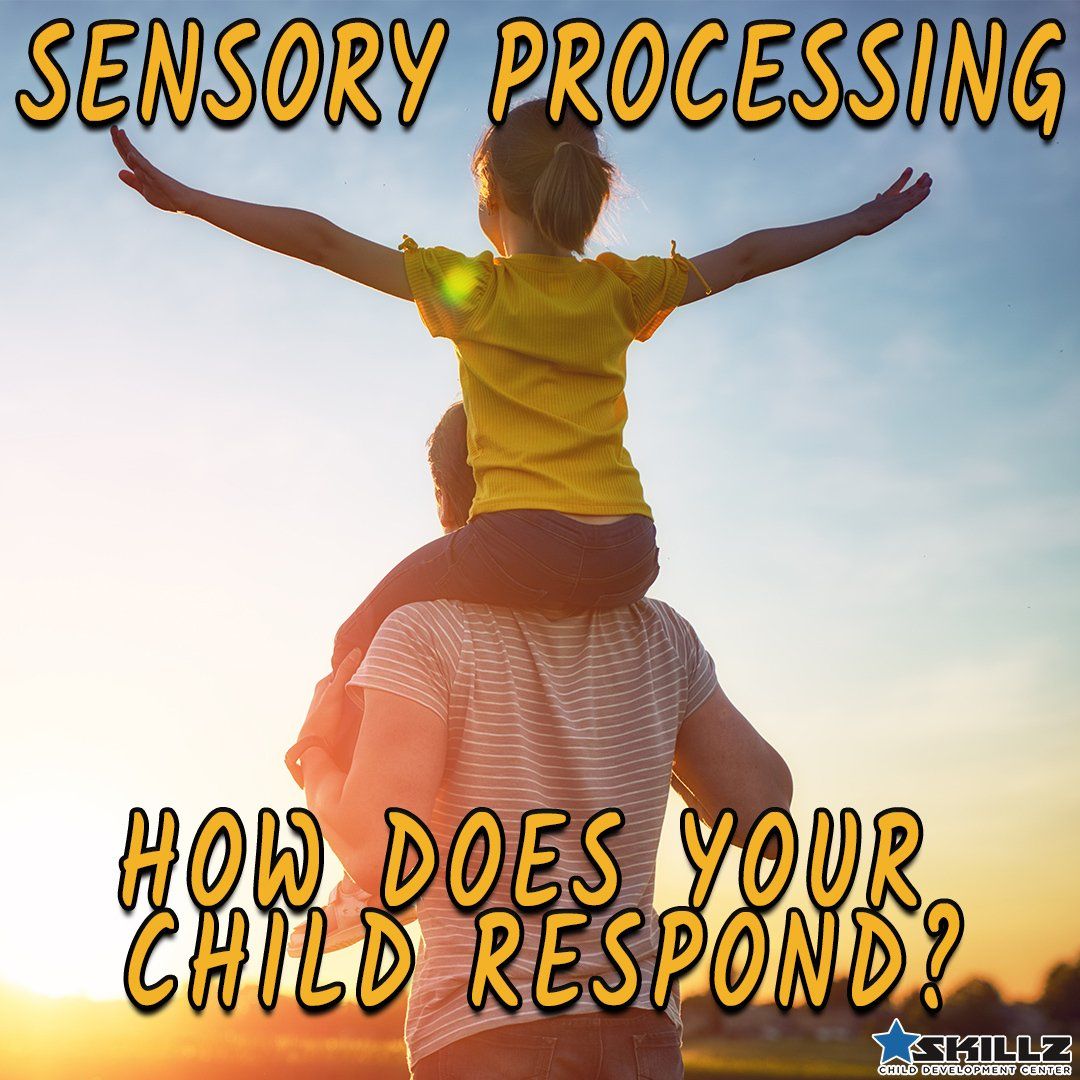Blog Layout
Sensory Processing-How Does Your Child Respond?
CD Young • Jun 28, 2021
Sensory Processing-How Does Your Child Respond?

Sensory Processing-How Does Your Child Respond?
As we navigate the world, we all use our senses to receive input from our surroundings, let our brains process, and then tell us how to react. Generally, we respond with minimal disruption to our routine. However, processing sensory stimuli can be a challenge for some people, either because there is too much or not enough. This can be difficult for children since many experiences are still new, and they haven’t yet developed coping skills and emotional regulation to respond appropriately. Educating ourselves on the variations of how Sensory Processing Disorder (SPD) can present in our children will help us assist them in learning how to manage the way they respond.
Sensory processing the way messages from the senses are received by the nervous system and translated into appropriate behavioral and motor responses. This includes input from sight, smell, hearing, taste, and touch, as well as the proprioceptive and vestibular senses. Unfortunately, the brains of children with SPD get the information mixed up, and, therefore, reactions are often problematic. These things can manifest in various ways depending on the age, setting, arousal level, and how well the child knows how to self-regulate.
There are two ways that children with SPD react to sensory input.
In addition, some children can show a combination of reactions depending on their temperament and their situation. But no matter how they react, SPD can be difficult on children and interfere with making friends and learning. For Sensory Seekers, their behaviors can be mistaken for impulsivity or hyperactivity. For Sensory Avoiders, their behaviors can be seen as being overly picky or anxious. Therefore, misdiagnosis for another disorder often happens.
Sensory processing the way messages from the senses are received by the nervous system and translated into appropriate behavioral and motor responses. This includes input from sight, smell, hearing, taste, and touch, as well as the proprioceptive and vestibular senses. Unfortunately, the brains of children with SPD get the information mixed up, and, therefore, reactions are often problematic. These things can manifest in various ways depending on the age, setting, arousal level, and how well the child knows how to self-regulate.
There are two ways that children with SPD react to sensory input.
1)Sensory Seekers (hyposensitive): These children under-react to sensory input. They are always in motion and seen as “wild.” They enjoy rough play, make loud noises, constantly touch objects, and have poor personal space.
2)Sensory Avoiders (hypersensitive): These children overreact to sensory input. They prefer quieter environments, are particular about clothing and how it feels, are picky eaters, and can be startled by unexpected lights or sounds.
In addition, some children can show a combination of reactions depending on their temperament and their situation. But no matter how they react, SPD can be difficult on children and interfere with making friends and learning. For Sensory Seekers, their behaviors can be mistaken for impulsivity or hyperactivity. For Sensory Avoiders, their behaviors can be seen as being overly picky or anxious. Therefore, misdiagnosis for another disorder often happens.
Presented by Skillz for
CD Young's Karate in Henderson - Henderson and Las Vegas Skillz Program
CD Young's Karate Blog
#karatenv #bestoflasvegas #hendersonblog #hendersonparents
CD Young's Karate in Henderson - Henderson and Las Vegas Skillz Program
CD Young's Karate Blog
#karatenv #bestoflasvegas #hendersonblog #hendersonparents
Author: Jennifer Salama of Skillz Worldwide.
Jennifer is a 4th-degree black belt and has been training in martial arts since 2001. She has a Masters Degree in Child Psychology and has embraced the SKILLZ curriculum because of its focus on child development and using Martial Arts as a vehicle to develop the child as a whole.
A CD Young's Karate Brand
Engage offers a family style martial arts program for students ages 5 and up. With separate classes for adults and kids.
© 2024
All Rights Reserved | Engage




